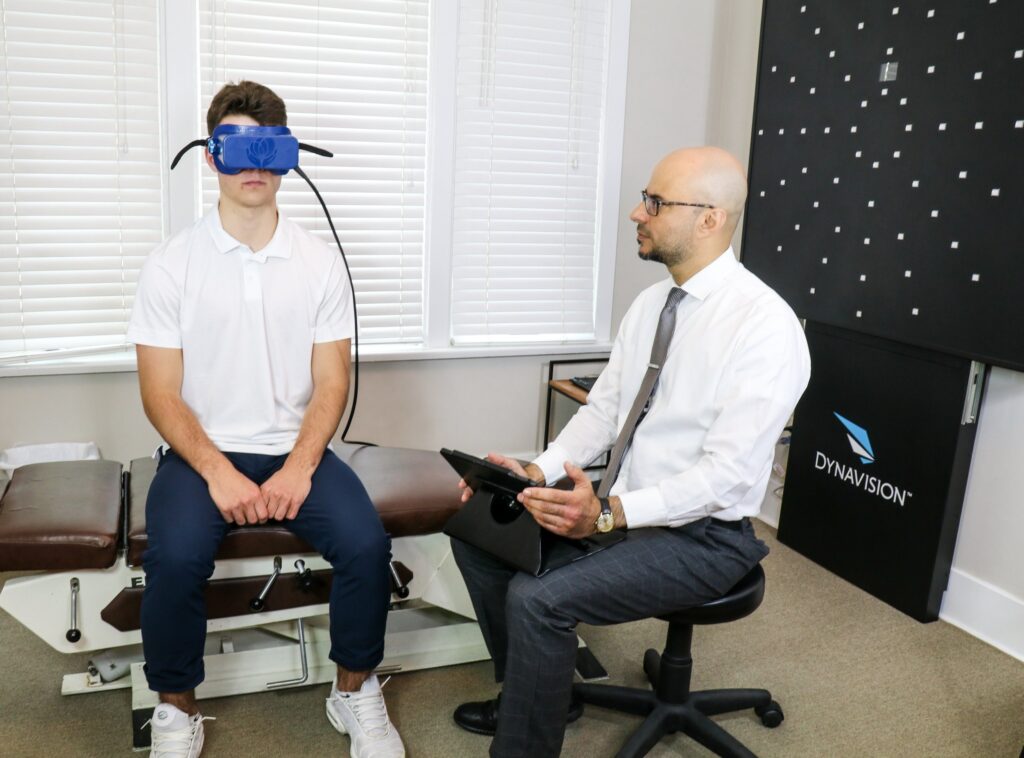
Are You Struggling with Dysautonomia/POTS?
Get Expert Help Today

What is POTS?
POTS stands for Postural Orthostatic Tachycardia Syndrome and is a condition that may stem from viral infections (COVID-19, EBV), chronic illness, trauma and even hereditary factors like Ehlers-Danlos Syndrome (EDS).
It often leads to dizziness, brain fog, a rapid heartbeat, and fatigue when standing—which impact your well-being. Recovery can be a serious challenge but there is hope. If you’re looking for a non-invasive, effective solution, Dr. Ioannidis provides expert care through Chiropractic Neurology to help restore your autonomic function and improve your quality of life.
Our Unique Approach to POTS and Dysautonomia
At our clinic, we recognize that POTS and other forms of Dysautonomia are complex conditions affecting multiple systems in the body. Rather than just managing symptoms, we take a functional, brain-based approach to restore autonomic balance and improve your quality of life. Through targeted neurological rehabilitation, lifestyle modifications, and personalized therapy, we aim to enhance your body’s ability to
regulate heart rate, blood pressure, and circulation more effectively.
By addressing the underlying nervous system dysfunction, we strive to help you regain energy, stability, and daily function so you can return to the activities you love with greater confidence.
1. Comprehensive Autonomic Evaluation
Understanding the complexity of POTS and Dysautonomia starts with a detailed assessment. Dr. Ioannidis conducts a thorough neurological and autonomic evaluation to identify dysfunctions in the brain, nervous system, and cardiovascular regulation. This may involve testing heart rate variability, blood pressure
responses, balance control, and sensory processing to get a full picture of your condition.
2. Individualized Care Plan
Every patient’s experience with Dysautonomia is unique, which is why we design customized treatment strategies focused on stabilizing autonomic function, reducing symptoms, and improving daily endurance. Rather than a one-size-fits-all approach, we create a plan based on your specific triggers, symptoms, and nervous system patterns.
3. Neurological and Autonomic Rehabilitation
Dr. Spiro applies advanced chiropractic neurology and functional rehabilitation techniques to support autonomic balance and nervous system regulation. Treatment may include:
Autonomic Retraining Therapy: Exercises to help regulate blood flow, heart rate, and circulation responses.
Brain-Based Exercises: Designed to enhance communication between the brain and autonomic nervous system.
Balance & Sensory Integration Therapy: Techniques to improve blood pressure control, circulation, and nervous system stability.
Visual and Vestibular Rehabilitation: Targeted exercises to improve visual tracking, postural control, and dizziness management as related to Dysautonomias.
4. Lifestyle and Nutritional Optimization
Autonomic health is influenced by daily habits, hydration, nutrition, and stress levels. We provide guidance on dietary changes, salt and electrolyte intake,
exercise pacing, and nervous system recovery techniques to complement your treatment.
5. Continuous Support and Progress Tracking
Because autonomic recovery takes time, we provide ongoing monitoring and care adjustments to ensure optimal improvement. Our goal is to help you regain confidence in daily activities, increase stamina, and restore autonomic stability over time.
Conditions We Support
- Postural Orthostatic Tachycardia Syndrome (POTS)
- Orthostatic Hypotension
- Vasovagal Syncope
- Autonomic Neuropathy
- Chronic Fatigue Related to Autonomic Dysfunction

Why Choose Dr. Spiro Ioannidis for Your POTS and Dysautonomia Care?
Dr. Spiro Ioannidis is a chiropractic neurologist with over 25 years of experience in understanding and addressing complex autonomic nervous system disorders. His expertise lies in identifying neurological imbalances that contribute to POTS, Dysautonomia, and related conditions, offering a science-based, non-invasive approach to restore function.
Our goal is more than just symptom relief—we focus on helping you build resilience, improve circulation and nervous system regulation, and regain energy for daily life. Through innovative neurological rehabilitation, autonomic retraining, and lifestyle guidance, we provide a comprehensive approach to support lasting stability and well-being. Whether you’re experiencing exercise intolerance, brain fog, blood pressure fluctuations, or chronic fatigue, we’re committed to helping you navigate your recovery with expertise, compassion, and a patient-first approach.

Schedule a Consultation
If you’re ready to take control of your POTS and Dysautonomia symptoms, we’re here to help.
Contact our office today to schedule a consultation. Together, we’ll develop a personalized treatment plan designed to support your autonomic function, improve your daily well-being, and help you regain confidence in your health.
have questions?
